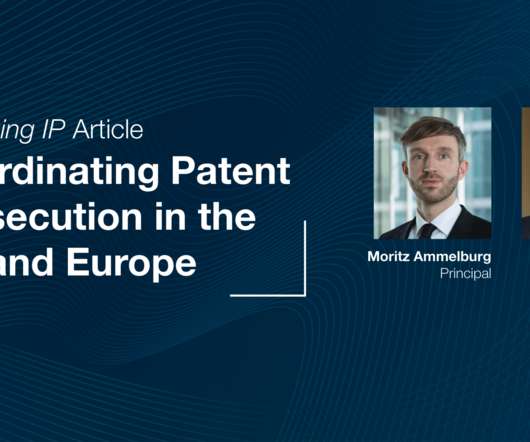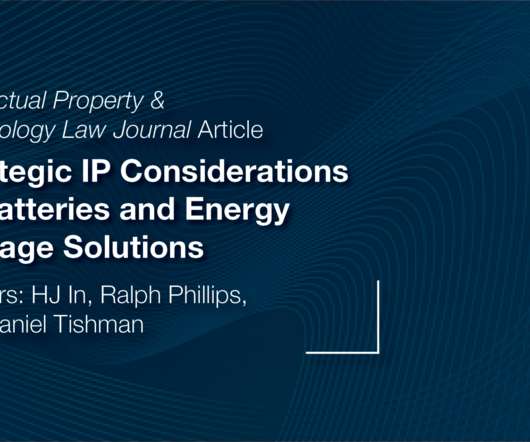IP Strategy Series: Setting Up a Comprehensive IP Strategy – An Overview for Harnessing Existing IP
IP.com
OCTOBER 2, 2024
DOWNLOAD A SAMPLE PATENT LANDSCAPE REPORT Securing Your IP Rights Once you’ve identified your IP assets, the next step is to secure your rights through the appropriate legal channels: Patents: File patent applications with relevant patent offices.















Let's personalize your content